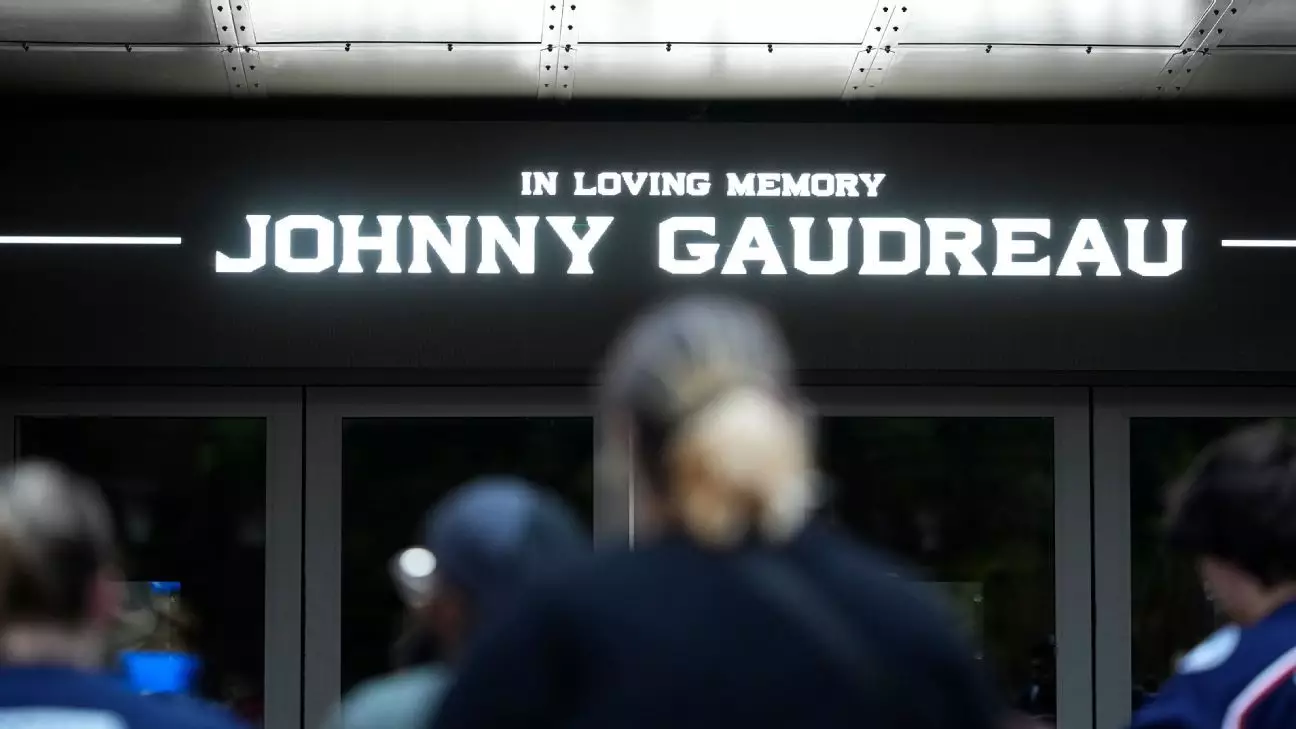In a heartbreaking turn of events, the cycling deaths of NHL player Johnny Gaudreau and his brother Matthew have ignited widespread sorrow and outrage. On August 29, these promising young athletes lost their lives in a tragic accident on a rural road in New Jersey, just before a joyous family event—their sister’s wedding. The charged driver, Sean M. Higgins, now faces grave legal repercussions, yet he recently entered a plea of not guilty, turning down a significant plea deal that would have resulted in a lengthy prison term.
Higgins, a 44-year-old man with a complicated history, appeared in Salem County court to formally plead not guilty to the indictment stemming from the incident. His decision to reject a 35-year prison sentence reflects a strategy aimed at contesting the prosecution’s claims, a move that further prolongs the ordeal for the victims’ family and the community. The case now heads towards a trial, where jurors will grapple with legal definitions of negligence, malice, and culpability.
Defense attorneys aim to paint Higgins’ actions as a series of unfortunate events rather than a deliberate act of malfeasance. They present him as a combat veteran, a loving father of two, and a working professional in addiction treatment, asserting that the circumstances leading to this tragedy are unlikely to recur. However, such defenses often bring into question the culpability of individuals who, while perhaps not inherently ‘bad,’ make profoundly dangerous choices that lead to irreversible consequences.
The Weight of Alcohol and Recklessness
Prosecutors contend that Higgins’ impaired state significantly contributed to the crash. Reports indicate that he had been drinking heavily prior to the incident, with a blood-alcohol level of .087—above the legal limit in New Jersey. Additionally, witness testimonies suggest that Higgins was driving aggressively, even as other drivers attempted to navigate around the cyclists safely. Such evidence raises significant ethical questions about personal responsibility and the inherent risks posed by impaired driving.
The backdrop of this case is more than legal; it is deeply emotional. The Gaudreau brothers were more than athletes; they were beloved family members, friends, and local heroes. Johnny Gaudreau, also revered in the hockey community as “Johnny Hockey,” had just begun a new chapter with the Columbus Blue Jackets after a successful decade with the Calgary Flames.
This tragic accident underscores urgent discussions about road safety, particularly concerning motorists under the influence. It serves as a tragic reminder of the fragility of life and the frequently overlooked consequences of reckless behaviors. While the defense hopes to underscore the uniqueness of this tragedy, the sobering reality is that similar events occur too often, claiming innocent lives.
As the case proceeds, it will serve as a focal point for discussions about justice, accountability, and the collective responsibility we hold toward making our roads safer. The community mourns the loss of two vibrant lives, which tragically ended in an instant due to choices that cannot be undone. As families, advocates, and legal teams prepare for the trial, the memories of Johnny and Matthew Gaudreau remain vivid reminders of the complexities of human decisions and the unforeseen consequences they can yield.


Leave a Reply